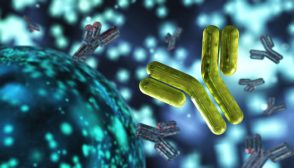Definition
noun, plural: cytotoxic T cells
A T cell responsible for inducing death to target cells (e.g. infected somatic cells and cancer cells)
Supplement
T lymphocytes, also called T cells, are a type of lymphocytes responsible for the cell-mediated immunity. The T in T lymphocyte stands for thymus. The thymus is the bodily organ where T lymphocytes mature. They are distinguished from other types of lymphocytes by the presence of special receptor (T cell receptor) on the cell surface. These receptors cannot bind directly to the antigens of the pathogens. Rather, they connect to the antigen presented on the cell surface of infected cells. In mammals, the T lymphocytes form in the bone marrow and attains maturity in the thymus. There are different types of T lymphocytes and one of them is cytotoxic T cell.
A cytotoxic T cell is a type of T lymphocyte that kills target cells, such as infected somatic cells and cancer cells. Cytotoxic T cell has CD8 receptor on its cell surface, and as such it is also referred to as CD8+ T-cell. It also expresses T-cell receptors (TCR), which are crucial for the recognition of specific antigen. In essence, the cytotoxic T cell binds specifically to the antigen presented via the MHC class I molecule on the surface of an infected host cell via its TCR. The CD8, in turn, binds to constant portion of the MHC class I. This prompts the cytotoxic T cell to destroy the target cell. The cytotoxic T cells are implicated as well to transplant rejections.
Also called:
- TC,
- CTL
- T-Killer cell
- cytolytic T cell
- CD8+ T-cell
- killer T cell
- killer cell
- K cell
- cytotoxic lymphocyte
See also:







